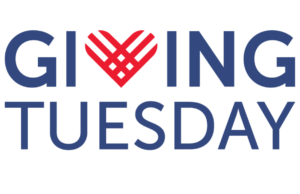Charitable giving could take a hit of between $5 billion and $13 billion under current tax reform proposals by Republican lawmakers but another policy change could make up that difference and then some, according to a new study released today.
In a white paper titled “Tax Policy and Charitable Giving,” commissioned by Independent Sector and conducted by the Indiana University Lilly Family School of Philanthropy, making the charitable deduction universal for all taxpayers would not only erase the potential $13-billion drop in donations but increase giving by as much as $1.1 billion to $4.8 billion.
President Donald J. Trump’s initial tax reform outline proposed doubling the standard deduction for individuals to $12,600 ($24,000 for joint filers) and reducing seven tax brackets to three (10 percent, 25 percent and 35 percent).
While overall giving could decline between 1.7 percent and 4.6 percent, increasing the standard deduction could have a bigger impact on giving to religious organizations than other charities, reducing giving by 4.7 percent as compared to 4.4 percent to other organizations.
Americans donated $373.25 billion to charities during the 2015, the most recent year for which data are available from Giving USA. Taxpayers who itemize are far more likely to donate to charity and high-income taxpayers are much more likely to itemize.
Expanding the charitable deduction to non-itemizers as a stand-alone provision increases total giving by between 1.3 percent and 4.3 percent, and has a negligible effect on tax revenue (-0.41 percent to -0.47 percent). All policies have a negative impact on federal tax revenue, an estimated decrease of 3.8 percent when all three are combined.
“We took the position last year that expanding the charitable deduction to 100 percent of taxpayers would encourage all Americans to give more and ensure that more dollars were being put back into communities,” IS President and CEO Daniel Cardinali said in a press release announcing the study’s results. “We are encouraged that the research shows that expanding the deduction has the potential to more than offset the estimated loss in charitable dollars resulting from current reform proposals,” he said.
The new study used the “2014 Tax Reform Act” introduced by then-House Ways and Means Committee Chairman Dave Camp (R-Mich.) to estimate potential effects of tax policies on charitable giving. The White House outline released last month and the House Tax Reform Blueprint from last summer both closely match the Camp legislation in reducing marginal tax rates and increasing the standard deduction. Currently, the standard deduction stands at $6,300 for individuals and $24,000 for joint filers; the Camp proposal called for $11,000 and $22,000 and mirrors the three tax brackets in the White House plan.
The study also uses data from the University of Michigan’s Study of Income Dynamics, the Philanthropy Panel Study created by the Lilly School, and the 2009 Internal Revenue Service (IRS) Statistics of Income Public Use File. The paper expands upon an Urban-Brookings Tax Policy Center study in October by examining the expansion of the charitable deduction to non-itemizers as an addition to the current proposals to increase the standard deduction and decrease the top marginal tax rate.
“When talking about changes in tax policy, it is important that the debate is informed by research. This study provides important information about the expected effects of the proposed tax policy changes and the extension of the charitable deduction to non-itemizers,” said Patrick Rooney, associate dean for academic affairs and research at the Lilly Family School of Philanthropy.
The tax reform blue print from the administration and Republican lawmakers appears to preserve the charitable deduction but there are unintended consequences of reducing the incentive for charitable giving, said Susan Dreyfus, chairman of Leadership 18 and president and CEO of the Alliance for Strong Families and Communities. “Fortunately, this study provides data that indicates there is a simple fix. By making the charitable deduction available to all, including non-itemizers, the incentive to give will be preserved,” she said in a press release announcing the results.










